How Artificial Intelligence Will Change the World and Education: The Most Unexpected Predictions
Today, the artificial intelligence industry is considered the most rapidly developing one — technology companies around the world regularly release improved versions of neural networks, develop fundamentally new AIs, expand their capabilities, and, along with that, their power over ordinary users.
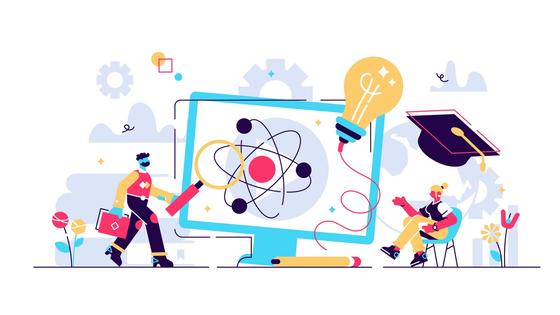
If, with the emergence of the first neural networks, we enthusiastically imagined how AI would help teachers, doctors, engineers and various other specialists, now the predictions regarding neural networks are rather frightening. We have collected the most fantastic (and maybe not!) predictions about how AI will change people's lives and, in particular, the field of education.
Prediction #1. The end of the world is getting closer: neural networks will go beyond the Internet and seize control of all processes in the world
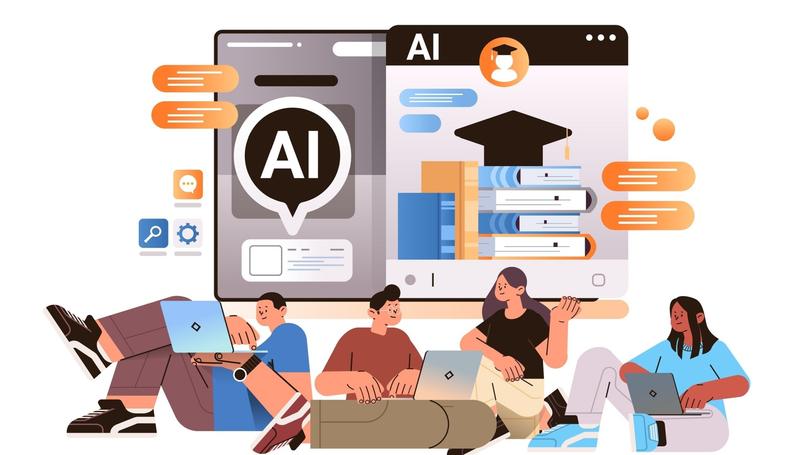
Such rapid progress in the field of artificial intelligence may put an end to the further development of society. This opinion is held by IT expert, co-founder of the Machine Intelligence Research Institute Eliezer Yudkowsky. He believes that humanity does not have much time left - computer systems that mimic people are about to go beyond the Internet and enslave everyone who interferes with them. In an article for TIME, Yudkowsky writes: "The most likely outcome of creating super-humanly intelligent AI is the death of everyone on Earth." The expert also stressed that the main danger lies in the development of not just neural networks that will compete with people, but of such a powerful AI that can surpass human intelligence.
In this regard, Yudkowsky considers it necessary to urgently abandon all research and testing in the field of AI, to establish restrictions on the use of neural networks in education and their application in various other areas of activity. To begin with, Yudkowsky proposes to suspend the development of neural networks for 30 years. The only area, according to the expert, in which neural networks can really be useful and help people cope with problems that they cannot cope with on their own is biotechnology and medicine.
Similar concerns were expressed by representatives of the Future of Life Institute. A letter published back in 2023 suggests that we consider whether people should allow machines to take their jobs, fill the surrounding information field with propaganda and fakes, and completely control our lives. The Future of Life Institute is engaged in research on phenomena and phenomena that pose an existential threat to humanity. Artificial intelligence is considered to be precisely such.
Prediction #2. People will stop communicating and making friends
All cognitive functions, interpersonal communication and communication will come to naught - they will be replaced by artificial intelligence and specially trained neural networks. For example, Character AI already exists - a unique service that allows you to communicate with characters from your favorite movies, books and other pop culture heroes. There you can discuss existential questions with Aristotle and other philosophers, discuss the theory of evolution with Darwin, share your opinion about new technologies with Elon Musk, in short, choose any character or real person that interests you. Most likely, if people have the opportunity to chat with Lady Gaga, Mark Zuckerberg, Abraham Lincoln, Harry Potter for free and as much as they want, they will prefer AI to live communication. It can be assumed that this will all lead to problems in socialization, but considering that neural networks will replace teachers, doctors, and many other specialists, the need to interact with other representatives of the human race will disappear altogether.
Prediction #3. Every child (and adult!) will have their own AI tutor
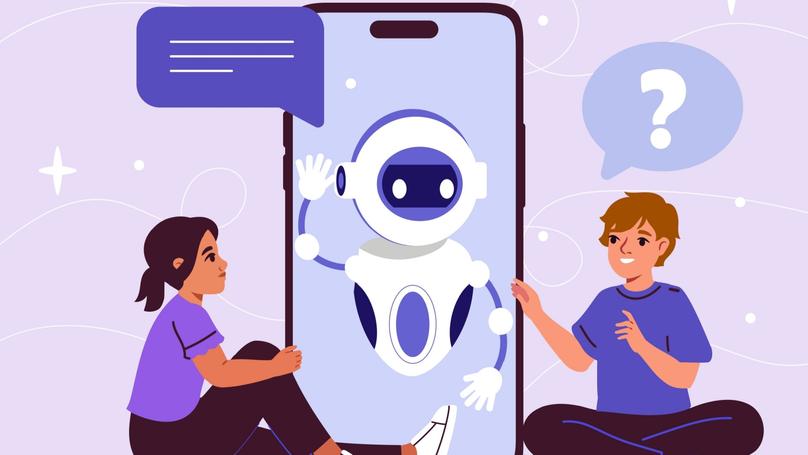
Bill Gates - one of the richest people in the world and founder of Microsoft - is confident that in the near future children will have the opportunity to fully study with AI tutors. Many experts support this point of view, and some are even convinced that software will be able to replace human teachers, so the need to attend school will disappear altogether.
"Khanmigo from the Khan Academy, which is based on AI, is already working in this direction," says Gates. "It can teach mathematics, natural and human sciences - for example, explain a quadratic function or create mathematical problems for homework." This will allow many families, who previously did not have such an opportunity, to provide their child with a quality education. In addition, neural networks can quickly adapt to users, their interests and needs. For example, if a child likes to play Roblox, AI will be able to explain unclear topics to him using the example of an online game. We love such predictions!
Prediction #4. All training will move to the metaverse
A new era of learning, in which most communications take place online, has long been thriving. But it is likely that humanity will not be limited to digitization alone. Experts in the field of e-learning are confident that soon all schools, universities and other educational institutions will exist exclusively in metaverses.
Such educational institutions existing in metaverses are able to satisfy much more diverse needs of both students and teachers, and the entire education system as a whole. VR technology allows you to travel around the world, move in time, get to know each other better and socialize more easily, conduct the boldest experiments, model unique phenomena and many more opportunities, without paying attention to physical obstacles. In addition, the entire educational process, routine moments associated with documentation, and so on, are already automated.
Interestingly, the learning process in metaverses becomes simultaneously a game process, turning boring lectures into exciting quests and involving schoolchildren and students in this. For example, the University of Tokyo, where the Metaverse School of Engineering was launched, can already boast of positive results. All training takes place in virtual campuses, and lecturers and students attend classes in the form of avatars. The educational process also takes place at the University of Hong Kong, where they plan to open a full-fledged meta-university with all specialties. This is exactly what the e-learning industry is moving towards - a complete rejection of offline learning and a transition to metaverses.
Moreover, not only students, but also schoolchildren are already being taught in metaverses. The world's first school, existing only in the vastness of the metaverse, is Yushi International High School. It opened in Japan last year, and the decision to found an educational institution in virtual space was approved by the Ministry of Education. As part of the educational process, students actively use all kinds of VR technologies, so it is possible to study at such a school from any corner of the country and even the world.
Prediction #5. Need psychological help and support? Contact AI
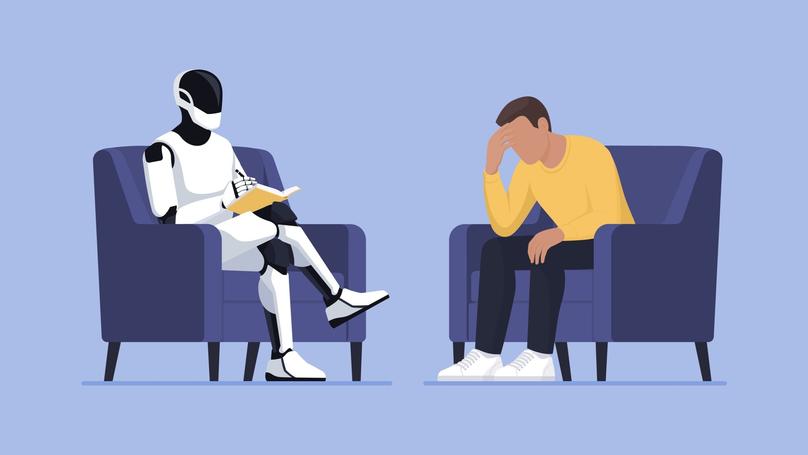
In addition to the fact that artificial intelligence will learn maximum personalization of training, it will be able to perform the functions of a psychotherapist (and any other doctors too!). Now, not everyone can afford a session with a good specialist, especially schoolchildren and students, although preparing for exams provokes increased anxiety, stress, and insomnia. AI democratizes this area as well, making psychotherapy accessible to everyone. The Wysa and Youper chatbots are currently working in this direction. Neural networks are actively learning to memorize more and more information about their patient, form a history of his illness, give advice and recommendations, independently inquire about his state of health and ask leading questions. AI will also be able to track physical reactions to therapy using additional headsets, such as smart watches.
Already, artificial intelligence is able to analyze speech and determine such notes in a person's voice that indicate the presence of depression or various other disorders. And when studying text messages, they can determine your emotional state, psychological characteristics of personality, and predict your next answer. It remains only to guess that in the future, neural networks will learn to correctly interpret the data obtained and make correct diagnoses, prescribe treatment, monitor progress and reduce the risks of developing more severe forms of diseases.
Lectera’s Online Courses by topic
Prediction #6. The duration of training will be significantly reduced
Classes in metaverses, supplemented by master classes, interactive games, experiments and practice, will significantly reduce the duration of training. The improved language models themselves will also help students learn new complex topics more easily and more than 50% faster. Thus, the duration of training will be reduced by at least half. This, in turn, will open up a lot of new additional opportunities for students, for example, to enter the profession earlier, easily combine work and study, immediately reinforcing the knowledge gained in practice.
Prediction #7. AI will replace teachers
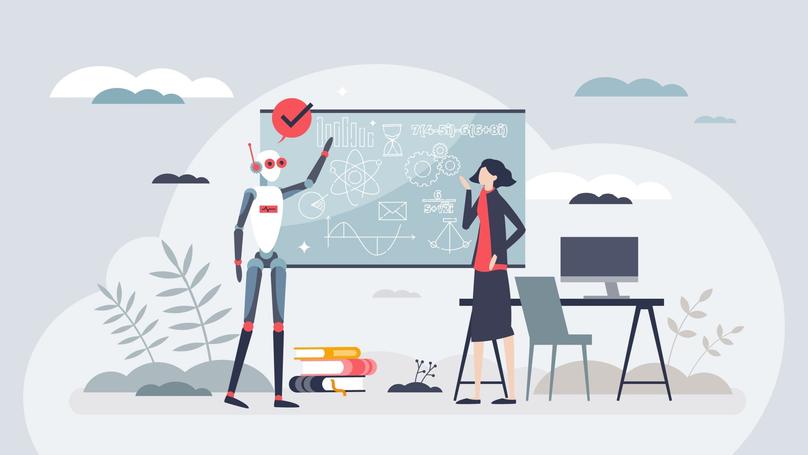
It is likely that there will be no teachers at all in the same metaverses. Neural networks will take over the creation and adaptation of programs to the special needs of students, personalization of training, assessment of the success and progress of students. In order to create the impression of communication with a person, such neural networks will be in the form of AI avatars. They will be able to conduct lessons, answer students' questions, and provide emotional and psychological support.
Even the role of mentors and mentors will be taken over by artificial intelligence. AI will also become something like a career coach for people, for example, it will motivate them to achieve their goals, suggest how to proceed, give advice on personal and professional growth. By the way, you can also turn to AI when looking for a job. It will be able to analyze data on the labor market, trends in education and your profession, individual preferences, competencies and skills. This will reduce the unemployment rate, as well as allow you to make a more informed choice in favor of one or another vacancy.
Prediction #8. Most school subjects will become irrelevant
Given the development of VR and the widespread introduction of AI in education, many school subjects will simply cease to be taught. With a high degree of probability, they will be replaced by new disciplines related to the latest technologies and neural networks. For example, schoolchildren and students will no longer be taught traditional computer science. Instead, a whole pool of disciplines will appear - programming, training neural networks, prompt engineering, artificial intelligence and ethics, cybersecurity, digital literacy and many others.
Some of these predictions seem quite realistic. Perhaps we will not have to wait long to verify the correctness of the hypotheses put forward by IT experts. Obviously, the field of e-learning will change significantly, we can only hope that these changes will be for the better!
Share this with your friends via:
Latest News

A significant stage in the development of the alternative education system has begun in West Northamptonshire in the UK: the County Council is actively calling on parents, guardians, and trustees to participate in shaping the future of this key area.

Outwoods Primary School in Atherstone, Warwickshire, having experienced deep sadness after the loss of their famous cat, Silla, has found solace in a new pet – a Maine Coon named Aloysius O’Hara.

In modern universities, artificial intelligence, and in particular ChatGPT, is rapidly transforming from a controversial tool into a full-fledged student assistant.

An innovative educational project is gaining momentum in UK primary schools, aiming to change attitudes towards video games.

The Massachusetts Institute of Technology (MIT) presents MIT Learn – a revolutionary online platform that opens a “new front door” to access university knowledge and resources.












 Test. Check Your Social Media Dependency Level!
Test. Check Your Social Media Dependency Level!
 Test: What Business is Right For You?
Test: What Business is Right For You?
 “I’m Here for the Long Haul”: When Loyalty to a Company Becomes Toxic
“I’m Here for the Long Haul”: When Loyalty to a Company Becomes Toxic
 Test: How Prone Are You to Abusive Behavior as a Manager?
Test: How Prone Are You to Abusive Behavior as a Manager?
 Test. What superpower would you possess if you were a superhero?
Test. What superpower would you possess if you were a superhero?
 Test. What Should You Let Go of Before Winter Ends?
Test. What Should You Let Go of Before Winter Ends?
